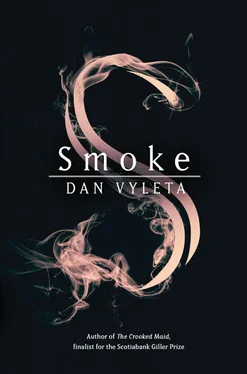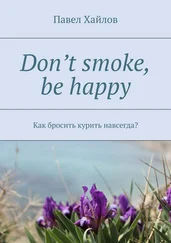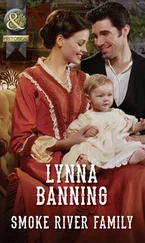“What is it like here?”
I was about to give him some meaningless answer, something to the effect that he would feel right at home, never he worry. Then I noticed his expression. There was something in his face that said, Don’t mollycoddle me, don’t lie, don’t feed me any bull.
Or I’ll despise you forever.
So I gave him the truth.
“It’s like a prison,” I said. “Like a prison our parents pay for.”
He smiled at that and told me he was “Thomas.”
We have been friends ever since.
They make him wait for his punishment.
It’s laundry day the next morning and, having no choice, Thomas throws the sodden, smelly shirt into the basket, along with the week’s underwear and bedclothes. The Soot stain has faded but not disappeared.
It is no consolation to Thomas that many a schoolboy adds his own stained clothes to the growing pile. Each transgression leaves behind its own type of Soot, and those versed in such matters can determine the severity of your crime just by studying the stain’s density and grit. This is why no classes in Smoke and Ethics are scheduled for laundry day: the master, Dr. Renfrew, spends his morning locked in his office, rooting through boys’ underclothes. The list of those found guilty of “Unclean Thoughts and Actions” is displayed in a glass cabinet before lunch, so that each schoolboy may learn what punishment has been levied on him. Two days of dining-hall service; three pages that have to be copied from the Second Book of Smoke ; a public apology at school assembly. These, for minor transgressions. More serious offences require individual investigation. The boy in question will be called to the master’s study, to answer for his sins. There is a chair there, upholstered in leather, that is equipped with leather straps. The boys call it the dentist’s chair. No teeth are pulled, but the truth, Dr. Renfrew has been known to say, has to be dug up by the roots. For the most serious violations of Good Order even this procedure is seen to be insufficient. They require the calling of something referred to as a “tribunal.” So Thomas has heard. There has been no such case in the weeks since he’s been at school.
In class, Thomas sits distracted and is reprimanded when he cannot recite the four principles of Aristotle’s theory of causation. Another boy recites them with glib relish. He is not asked what the four principles mean, how they are used, or what good they may do; nor who this Aristotle was whose marble bust stands in the school hallway, near the portrait of Lord Shrewsbury, the school’s esteemed founder. And in general Thomas has found that the school is more interested in the outward form of things rather than their meaning; that learning is a matter of reciting names or dates or numbers: smartly, loudly, and with great conviction. He has proven, thus far, a very bad student.
At lunch, he hardly eats. He is sitting in the school refectory, which has the shape and general dimensions of a chapel and is dreadfully cold. December winds have pushed the snow into the windows. On the outside they are shrouded in dull white that saps the warmth from every ray of sun. On the inside, they bleed cold water from the edges of their metal frames. On the floor, the puddles refreeze and eat away at the unvarnished wood.
Lunch is a cut of hard gammon half hidden under a ladleful of lukewarm peas. Each bite tastes like mud to Thomas, and twice he bites down on the fork by accident, digging the prongs into his tongue. Halfway through the meal Charlie spots him and joins him at the table. One of the teachers held him up after class. Charlie waits until the skinny little boy on service duty has condemned him to his own piece of leathery gammon with its attendant pile of yellowing peas.
“Anything?” he asks.
Thomas shakes his head. “Nothing. Look at them, though. They are all waiting for it. The pupils, and the teachers, too. All of them, impatient. Yearning for the bloody shoe to drop.”
He speaks resentfully and even as the last word leaves his lips, a wisp of Smoke curls from his nostril, too light and thin to leave behind Soot. Charlie disperses it with a quick wave. He is not worried. Hardly anyone gets through the day without a minor transgression, and there have been days when a teacher could be seen flapping at a thread of Smoke pouring from his tongue. The students tend to like these teachers better. In their imperfection they are closer to their own states of grace.
“They can’t send you home.” Charlie sounds like he believes it. “You’ve only just got here.”
“Maybe.”
“He’ll call you into his office, Renfrew will.”
“I suppose so.”
“You’ll have to tell him how it was. No holding back.”
And then Charlie says what’s been on Thomas’s mind all morning. What he hasn’t dared spell out.
“Otherwise he mightn’t let you join the Trip.”
Thomas nods and finds his mouth too dry to speak.
The Trip is what everyone has been talking about from the minute he arrived at school. It’s a unique event: there has been nothing like it in the school’s history for close to three decades. Rumour has it that it was Renfrew who had insisted on the Trip’s revival, and that he has faced fierce opposition, from the teachers, the parents, and from the Board of Governors itself. It’s hardly surprising. Most decent folk have never been to London. To take a group of schoolboys there is considered extraordinary, almost outlandish. There have been voices suggesting that it will put the whole school in danger. That the boys who go might never return.
Thomas still has trouble finding spit for words. “I want to go” is all he manages before breaking into a dry cough. It does not quite capture what he feels. He needs to see it. The prospect of the Trip is the only thing that’s kept him going these past few weeks. The moment he heard about it was the moment he decided there might be a meaning to his coming to school, a higher purpose. He’d be hard-pressed to say exactly what he expects from their visit to London. A revelation, perhaps. Something that will explain the world to him.
The cough runs its course, exhausts itself in a curse.
“That bastard Julius. I could kill the bloody turd.”
Charlie’s face is so honest it hurts.
“If you can’t go, Thomas, I won’t—”
Thomas cuts him short because a group of teachers are passing them. They are speaking animatedly, but drop their voices to a whisper the moment they draw level with the boys. Resentment flickers through Thomas’s features, and is followed by another exhalation of pale, thin Smoke. His tongue shows black for a second, but he swallows the Soot. You do that too often, your windpipe roughens and your tonsils start to darken, along with what’s behind. There is a glass jar in the science classroom with a lung so black it looks dipped in tar.
“Look at them whispering. They are enjoying this! Making me stew in my own fat. Why don’t they just get on with it? Put me in the bloody dock!”
But Charlie shakes his head, watches the teachers huddle near the door.
“I don’t think they’re talking about you, Thomas. There is something else going on. I noticed it earlier, when I went to the Porter’s Lodge, to see if I had any mail. Master Foybles was there, talking to Cruikshank, the porter. Making inquiries. They are waiting for something, some sort of delivery. And it’s important. Foybles sounded pretty desperate. He kept on saying, ‘You’ll let me know, won’t you? The minute it arrives.’ As though he were suspecting Cruikshank of hiding it away somewhere. Whatever it is.”
Thomas considers this. “Something they need for the Trip?”
Читать дальше












